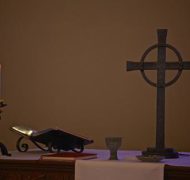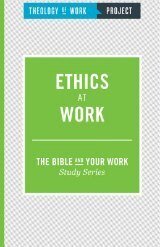Advent Reflection: The Roman Empire
Daily Reflection / Produced by The High Calling
At that time the Roman emperor, Augustus, decreed that a census should be taken throughout the Roman Empire.
Luke 2:1
If you’re ever in Rome, you might visit the Piazza del Popolo (the People’s Square). This large square is famous for, among other things, its twin churches that form part of the square’s border. In the center of the piazza is an obelisk that stands over one hundred feet high (shaped like the Washington Monument, though not as tall). Though it was fashioned in Egypt to honor one of the pharaohs, the Emperor Augustus brought it to Rome in 10 BC in order to set it up in his honor. The fact that Augustus held sway even over Egypt demonstrated his vast power over the Mediterranean world. Moreover, beneath the Egyptian obelisk, Augustus had an inscription carved in stone that acknowledged him as “Emperor Augustus Caesar, son of the divine Caesar.” So, if Augustus' father was divine, what did that make him?
The birth of Jesus was profoundly affected by the might of Augustus Caesar. Luke 2 explains that the emperor “decreed that a census should be taken throughout the Roman Empire” (2:1). This census would have helped Rome tax its subjects more completely. Because Jesus’ human father was a descendant of King David, Joseph was required to go to Bethlehem, the town of David, to register with the Romans. Taking along his very pregnant fiancée, Mary, Joseph journeyed about eighty miles or so from Nazareth, where he and Mary lived, to Bethlehem. The rest, as they say, is history.
As we read the familiar story of the birth of Jesus, we might take for granted the presence of Augustus and his census. But these elements do more than simply get Jesus to his birthplace. They also set the stage, underscoring the power and presence of Rome. The Roman Empire required Mary and Joseph to be in Bethlehem. It took a considerable amount of their earnings in taxes. It dominated their lives and limited their freedom. Thus, the parents of Jesus yearned, like their fellow Jews, for an anointed one, a messiah who would save them from Roman dominion and reestablish God’s own reign on earth.
Jesus was born as an apparently insignificant subject of the Roman Empire. Nobody in imperial authority, least of all Augustus, would have had the slightest interest in or concern about some baby born in Bethlehem. After all, Augustus was not only the most powerful man in the world but also a son of a god who vanquished even the once great nation of Egypt. Little did Augustus know that the one true God was doing something astounding, as God’s own kingdom invaded the Roman Empire through the birth of a baby in Bethlehem.
If you ever visit the Piazza del Popolo and gaze upon the obelisk that honors the power of Augustus, you’ll notice something curious. Reigning on the top of the obelisk is a symbol that once signified the cruel tyranny of Rome. There, on the great stone column that once honored an Egyptian pharaoh and a Roman emperor, is a cross.
QUESTIONS FOR FURTHER REFLECTION: What difference does it make that Jesus was born into our world as a person under the authority of Rome? How does the presence of Augustus in the story of Jesus’ birth impact the way we read it? Why does it matter that God entered our world in the way he did?
PRAYER: Gracious God, how I thank and praise you for coming as our Savior. Even though I am not in need of deliverance from Roman tyranny, I do need to be set free from the tyranny of sin and self, from the power of discouragement and death. And this you have accomplished through Jesus. All praise be to you!
I am impressed today, Lord Jesus, that you were born, not as an earthly prince with the hope of worldly authority, but as one under the power of Rome. Even the location of your birth reminds us that you have tasted what it feels like to be buffeted about as a victim of human whim. You understand, Lord, what it’s like to live in this world.
Yet in time, and in your ironic and astounding way, you defeated the greatest powers of earth—the powers of sin and death—in order to offer unprecedented freedom. On the cross it looked as if Rome had won. But through the cross, God won … goodness won … humility won … love won. Hallelujah! Amen.
______________________________
Advent Church
It’s not a secret: sometimes it’s hard to find Jesus in church. Some of us have gotten used to the routine and the way things unfold in our weekly church services, and we just can’t seem to move beyond going through the motions. Others of us have been disappointed or we’ve become disenchanted, and we’ve decided to look for Jesus outside the church building. Others have gotten bored with the whole thing, and no longer expect to find Jesus in either the church or the Church. And then, there are those of us who find great comfort and deep meaning in both the church building and the Church of God.
Jesus built the church on Peter’s confession that Jesus is the Christ, the Son of Living God. Jesus pronounced that not even the gates of hell would prevail against it. Christ’s grace is at work in the church. And in the Church. In Advent Church, let’s celebrate the truth that Jesus is the Christ, the Son of the Living God, and let the Church say, “Amen.”
Featured image by Cindee Snider Re. Used with Permission. Source via Flickr.






